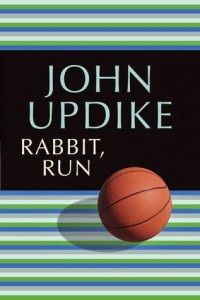by Steve Liskow
A few weeks ago, I gave a short story one last read-through before submitting it, and I found myself wondering, "Would this work better in present tense?"
I've written nine of my sixteen novels in present tense, mostly the ones that take place in Connecticut. The Detroit stories with "Woody" Guthrie use past tense except for scenes in Megan Traine's POV. She lives in the present. Both the short story that was a finalist for the Edgar and the novel that was short-listed for the Shamus were in present tense, too.
Some of my Sleuthsayers mates say present tense takes them out of the story, and I know at least one publisher has guidelines on their website warning writers not to use it. OK. I'm going to go out on a limb here.
I don't think the average reader notices whether you use past or present tense. I don't believe that most of them think about why they like a story or not, except in terms of the character or the plot. They probably don't notice point of view, either (Unless it's done badly). Writers, of course, pay attention to those things, but how many "civilians" even notice that Bright Lights, Big City uses both present tense and second-person point of view?
Last week, I stumbled upon The Storytellers, Mark Rubinstein's collection of interviews with several dozen crime, suspense, and romance writers. His conversation with Don Winslow, one of my favorites, was the longest interview in the book, and Winslow says he turned to preent tense the same way I did. He was writing a book in past tense, and, at some point, he found himself getting bored. As an experiment, he wrote the next page in present tense and it was like the entire world opened up before him.
That happened to me, too. Fifty or sixty pages into the first draft of The Whammer Jammers, I hit a wall. After struggling for a few days, I decided that since the book had lots of action, I'd treat it as play-by-play, like the sport announcers I listened to growing up in the 1950s.
Bingo.
Winslow has an astonishingly varied background, our only shared experience being directing several Shakespearean plays, and when I read his comments on working with the Bard's language, I felt like I was listening to myself. Theater is ALWAYS in the present, and Shakespeare's images and rhythms delineate the characters and guide the movement in the scene.
Winslow points out that using present tense helps the reader participate in the story and "experience" all that is happening because it removes a barrier between reader and story. If the story is in the past, it suggests that it's already over and can't be changed. Present tense removes that safety net. MAYBE you can still change something, and that raises the stakes.
In present tense, it's more natural to use active verbs and avoid state of being ("to be") constructions and passives. Instead of static visual imagery, tactile and olfactory details filtered through the POV character bring the scene to life. Description becomes the verbal equivalent of a long tracking shot that becomes a landscape painting, but when you offer the character's reaction/response to the place in present tense, you eliminate that problem.
Dialogue can help carry the load, too. Winslow writes excellent dialogue and vivid internal monologues in the voices of his characters. How a person says something shows more about him or her than description. Look at these two passages:
She looked down at the cute kitten.
"Aren't you adorable." She picked up the kitten, which buried its nose in her neck and purred.
We see both actions, but HEAR the second one, and almost FEEL the cuddling, so it includes us in the scene.
Here are the opening lines of several novels and short stories in present tense. See how they involve the reader in the action?
I have a meanness inside me, real as an organ. Slit me at my belly and it might slide out, meaty and dark, drop on the floor so you could stomp on it. It's the Day blood. Something's wrong with it. (Gillian Flynn, Dark Places)
They shoot the white girl first. (Toni Morrison, Paradise)
The baby is dead in his mother's arms. (Don Winslow, The Power of the Dog)
You are not the kind of guy who would be at a place like this at this time of the morning. (Jay McInerney, Bright Lights, Big City)
In walks these three girls in nothing but bathing suits. (John Updike, "A & P")
A screaming comes across the sky. (Thomas Pynchon, Gravity's Rainbow)
"I poisoned your drink." (Duane Swierczynski, The Blonde)
It's never a good thing when the flight attendant is crying. (Hank Phillippi Ryan, Air Time)
Tyler gets me a job as a waiter, after that Tyler's pushing a gun in my mouth and saying, the first step to eternal life is you have to die. (Chuck Palahniuk, Fight Club)
They throw him out when he falls off the bar stool. (Laura Lippman, The Most Dangerous Thing)
Kevlar makes Hendrix itch. (Steve Liskow, The Whammer Jammers)
By the way, I eventually sent out that short story in past tense because I decided the rhythms worked better. But it's a case by case issue, like all writing.
What rules do YOU like to break?








